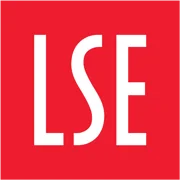Informing media regulation in the wake of the phone-hacking scandal

The media regulation research of Scott, Baldwin, Murray and others in the Law Department was regularly referenced and reported in the context of the first round of hearings in the Leveson Inquiry, which took place in 2011 and 2012.
What was the problem?
The Leveson Inquiry into the Culture, Practices and Ethics of the Press – a UK judicial inquiry into media ethics and practice chaired by Lord Justice Leveson – was established in 2011 after revelations that a private detective working for the News of the World newspaper hacked the phone of murdered schoolgirl Milly Dowler.
The revelations shocked the nation and the world, and sparked a call for greater scrutiny of media activity and more protection of individual privacy.
Key to the Leveson Inquiry was finding the right balance between media freedom and individual rights, particularly in the context of ‘new media’, including social media and ‘citizen journalism’.
EU ministers and justices were reviewing media regulation and privacy rules at the same time. Both the Leveson Inquiry and EU entities required solid research and analysis to assess what was working well and what needed to change.
What did we do?
Members of LSE's Law Department have produced a body of research on various aspects of privacy law and media regulation.
The research of Associate Professor Andrew Scott has focused on privacy law as it affects publication, looking at claims for misuse of private information, the law of harassment, and data protection law.
A key proposition of Scott’s research relevant to the issues at play in the Leveson Inquiry was that satisfaction in privacy cases could be secured by way of financial damages as opposed to an injunction only, with successful breach-of-privacy plaintiffs able to inflict significant financial pain on overly intrusive media companies.
Scott’s research suggested that a workable 'account of profits' remedy – where media organisations found to have violated privacy laws provide restitution in the form of a reasonable estimation of the profits they made from breaching someone's privacy – should be introduced by statute to deter the strategic exploitation of individuals' privacy by such organisations.
Research by Professor Robert Baldwin assessed how existing regulation works, with an emphasis on the fundamental strategies, institutions, and explanations of regulation, the interaction of law and administration, and the means for identifying 'good' regulation.
Another strand of research conducted by Professor Andrew Murray focused on the development and design of regulatory structures in the online environment—on the ways in which laws that have developed to meet the needs of a traditional ‘physical’ society are now evolving in response to the rapid technological and social changes associated with the modern information society.
What happened?
The media regulation research of Scott, Baldwin, Murray and others in the Law Department was regularly referenced and reported in the context of the first round of hearings in the Leveson Inquiry, which took place in 2011 and 2012.
In October 2011, Baldwin delivered an invited presentation to the Leveson Inquiry on the theme 'Supporting a free press and high standards: approaches to regulation'. The following month, Murray drew on aspects of his research when giving oral evidence to the Joint Select Committee on Privacy and Injunctions, established by the Attorney General to consider the operation of the law concerning privacy and injunctions in the context of the News of the World hacking scandal. Murray and Scott also submitted research-based written evidence to the Committee.
Scott’s research was also cited at length in the UK Government's submissions to the European Court of Human Rights regarding Mosley v United Kingdom, a case brought by Max Mosley, former president of the Fédération Internationale de l'Automobile (FIA), a non-profit association representing motor racing. Mosley, the subject of a salacious article in the News of the World, argued that the paper should have been required to notify him of the article ahead of publication, in effect making a case for prior disclosure for UK media.
Scott’s research supported the opposing argument: that prior disclosure as a blanket rule would stifle investigative journalism, a position supported by a variety of media and free speech watchdog organisations. The Court ultimately ruled against Mosley, saying that although both UK and European law demonstrated a clear obligation to protect personal privacy, existing protections in place, including the option of referral to the Press Complaints Commission and the potential to pursue significant financial damages, were sufficient. The result was widely hailed as a victory for freedom of speech in the UK and in Europe.


